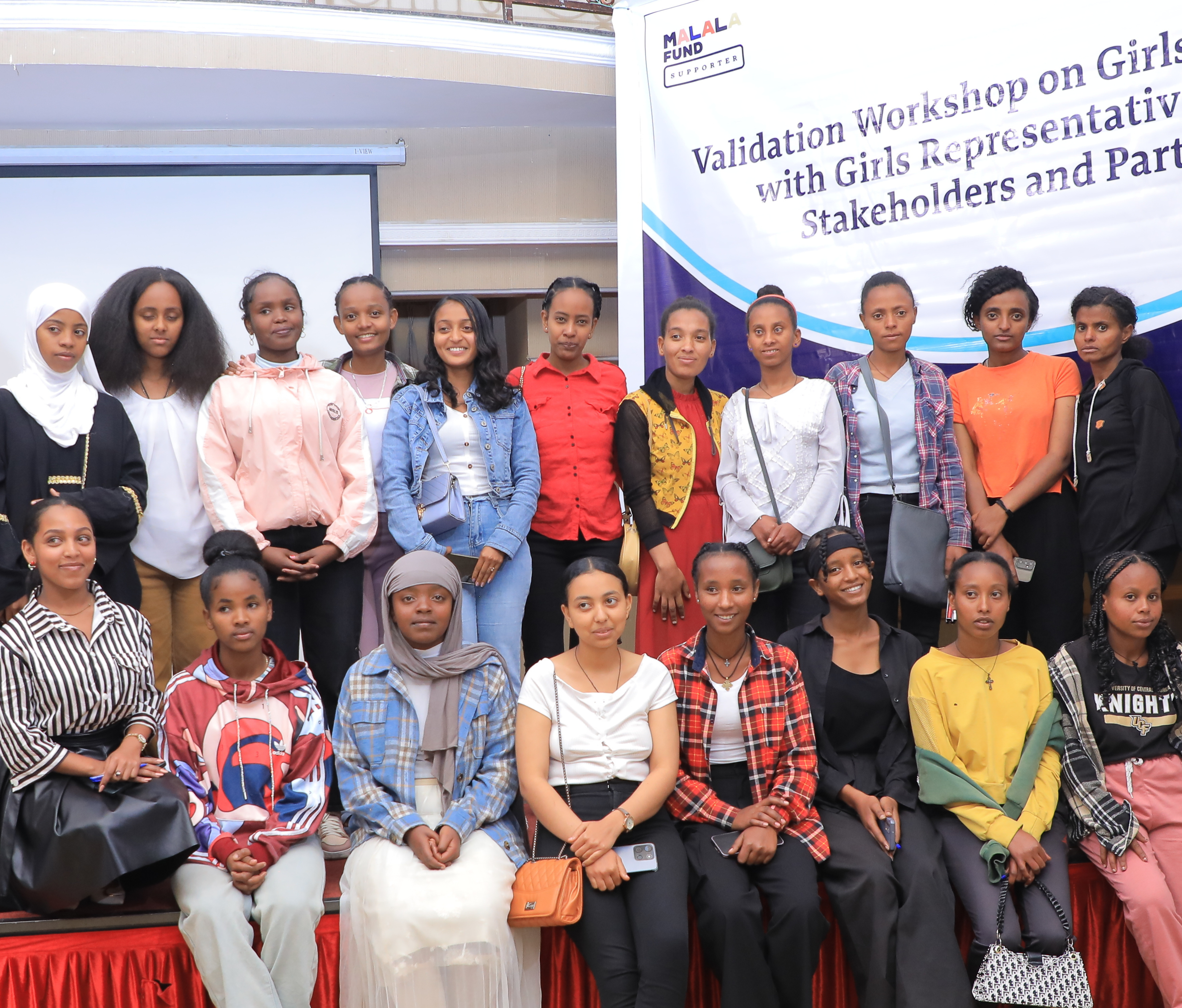
Tinsae Estifanos, 18, reflects on the women’s rights workshops that led her to establish a girls’ leadership club at her school and speak out on girls’ issues across Ethiopia.
I am a student who takes pride in excelling in my studies. Both of my parents are high school teachers who have instilled the value of learning in me. Their dedication has inspired me to pursue excellence in my academics and extracurriculars.
I hope to become a successful software designer and a women's rights lawyer. This dual career path reflects my commitment not only to technology and design but also to social justice and advocacy. As the sun rises, I dream of a world where every girl receives an education, free from the chains of sexual violence.
Girls face barriers to education, leadership and decision-making. But through support systems and educational programmes, we are finding our voices and standing up for our rights.
Participating in Network of Ethiopian Women’s Associations’ (NEWA) trainings and workshops opened my eyes to the power of knowledge and collective action and inspired me to take meaningful steps in my own community.

As a high school student in the Amhara region and the leader of my school’s girls’ club, I was excited and nervous when I was selected for the NEWA workshop. I knew this was a chance to gain valuable insights that could help me improve the club and make a difference in the lives of my peers. The workshop brought together students from various backgrounds and educators to teach us about national and international laws protecting girls and women’s rights. Before attending, my understanding of these laws was rudimentary, but the trainers explained them in ways that made them relevant to our daily lives. We also discussed the challenges girls face in education, leadership and personal development.
One of the most impactful moments came during an activity when we identified the major obstacles we face as girls. We reflected on our personal struggles and the systemic barriers that hold us back. As we shared our stories, I realised I wasn’t alone; many of us faced similar obstacles. This sense of unity was empowering. We left the session feeling supported, knowing that there were organisations and individuals committed to standing with us and helping us find solutions.
The workshop wasn’t just confined to one region. Sessions were held across Ethiopia, and representatives from each region later gathered in Addis Ababa for the Validation Workshop on Girls’ Manifesto*. There, we shared our experiences, discussed our findings and worked together to draft a collective conclusion.
Seeing how widespread these issues are and how girls came together to advocate for change was incredible. By the end of the conference, I felt a renewed sense of confidence and responsibility. Knowledge is a powerful tool, and with it, I could help empower other girls in my school and community.
When I returned to school, I knew I had to act. The girls’ club at my school had existed for some time, but it was inactive and disorganised. Many students didn’t see its value, and participation was low. But I saw its potential.
I began by sharing what I learned at the training and consultation workshop with members. We discussed our rights, leadership and the importance of collective action. Many of the girls were surprised to learn about the legal protections available to them. Some had faced gendered discrimination but didn’t know they had rights that could protect them. By educating them, I hoped to build their independence and encourage them to stand up for themselves and others.

New activities, discussions, mentorship programmes and awareness campaigns revitalised the club. I encouraged more girls to take on leadership roles, fostering a sense of teamwork and shared responsibility. Inspired by the workshop, I encouraged everyone to share their concerns. We identified issues like lack of confidence, limited leadership opportunities and gender-based discrimination. Together, we brainstormed solutions to address these problems.
Slowly but surely, I began to see a change. More students joined the club, and conversations about girls’ rights became more common. While there’s still much work to be done, I’m proud of the progress we’ve made. This experience taught me that change starts with small steps. By taking action, even in modest ways, we can create a ripple effect that inspires others and transforms our community.
Looking to the future, I’m hopeful that the seeds of change planted during the workshop will grow into a movement that empowers girls everywhere. I envision a world where educational opportunities for girls are not limited by societal norms or economic barriers. By fostering a supportive environment, we can encourage more girls to stay in school and achieve their dreams.
The consultation workshop was a transformative experience that equipped me with knowledge and a sense of purpose. Together, we can continue to advocate for our rights and create a brighter future for all girls. This journey has shown me that empowerment is not just a word, it’s a movement, and it starts with us.
*The manifesto aimed to amplify girls’ voices as a public declaration of NEWA's policy aims, including: advocating for the inclusion of girls’ issues in education policies, ensuring girls’ voices and needs are represented in legislation and education policy and ensuring Ethiopia’s compliance with national laws and international conventions on women’s rights.
